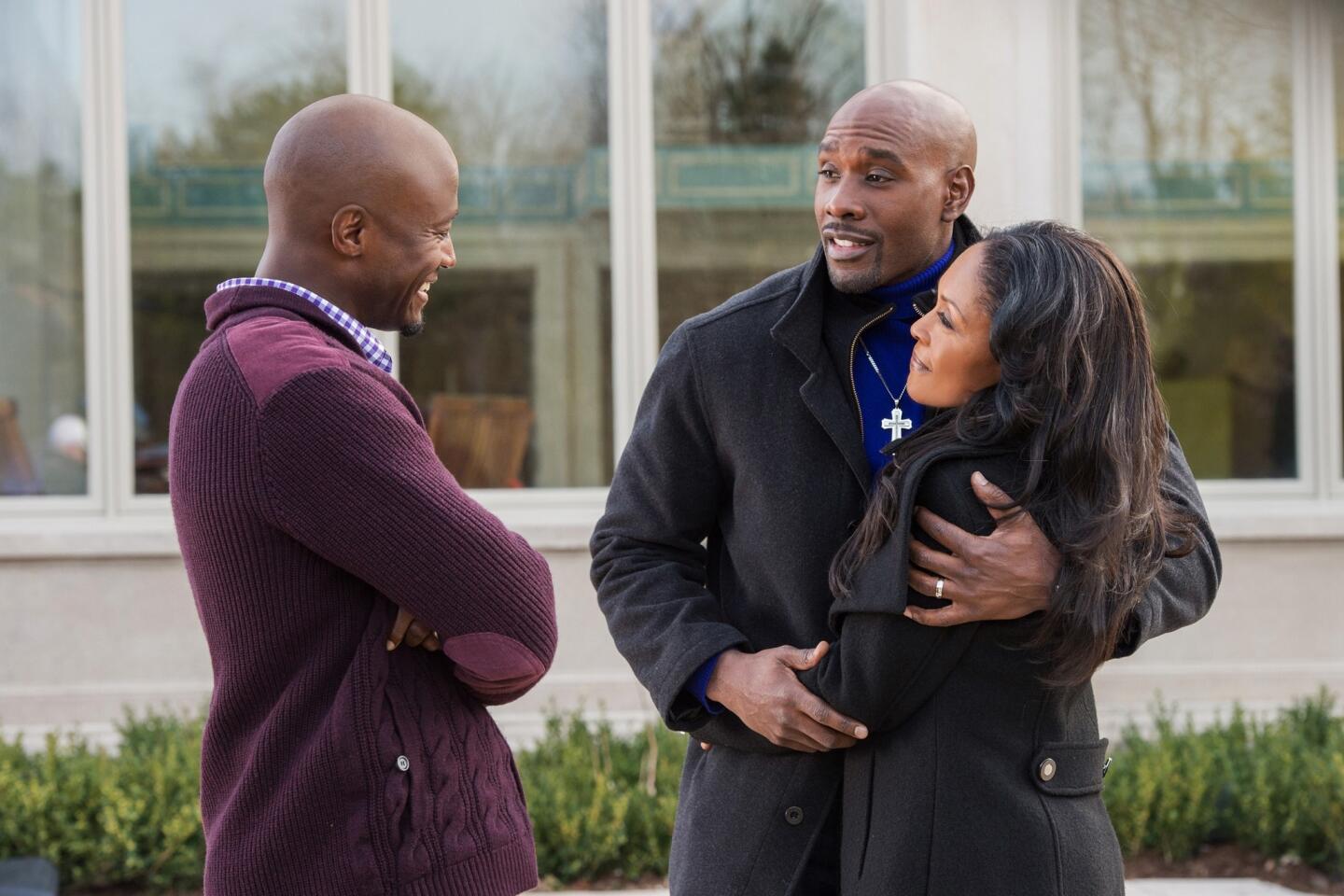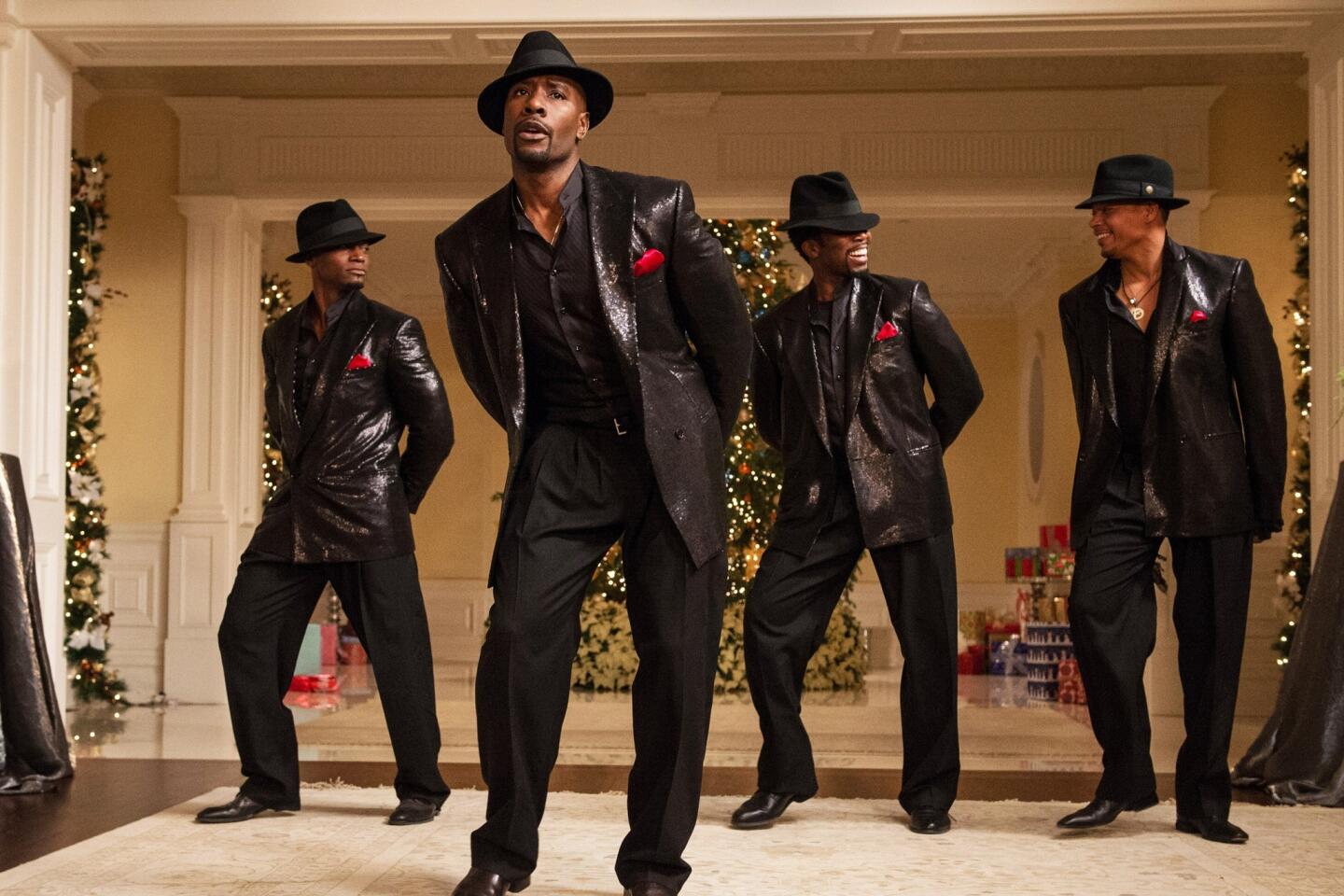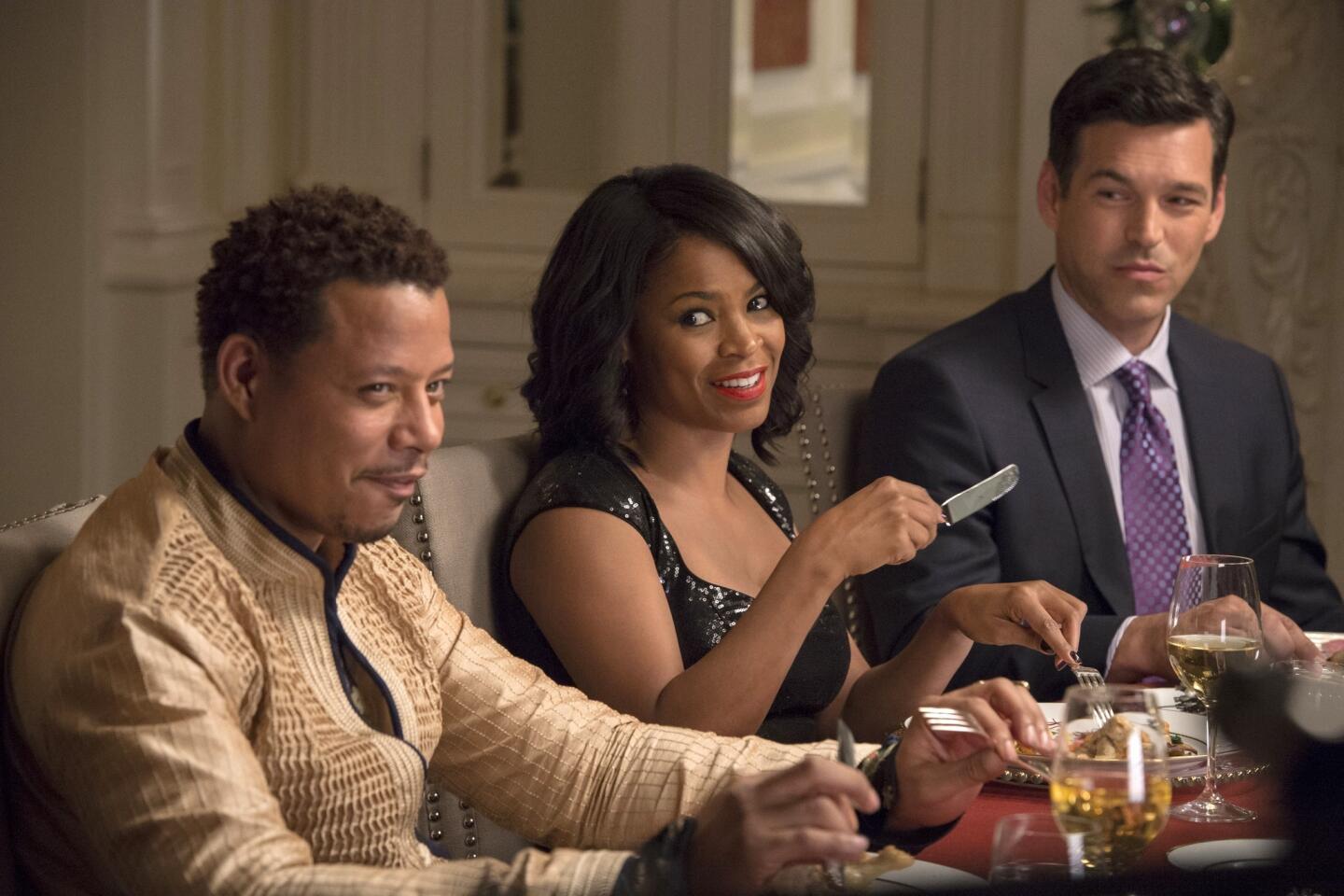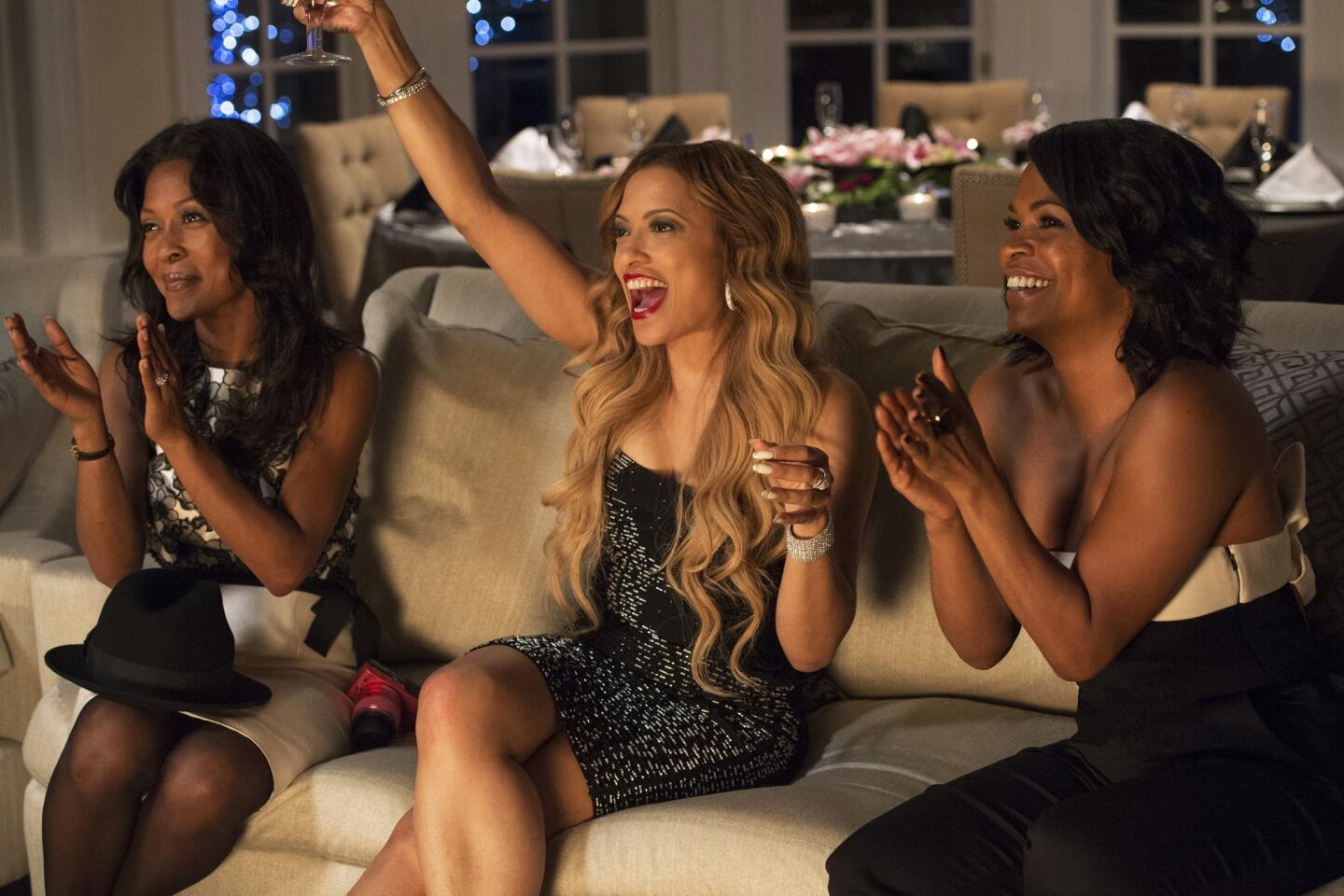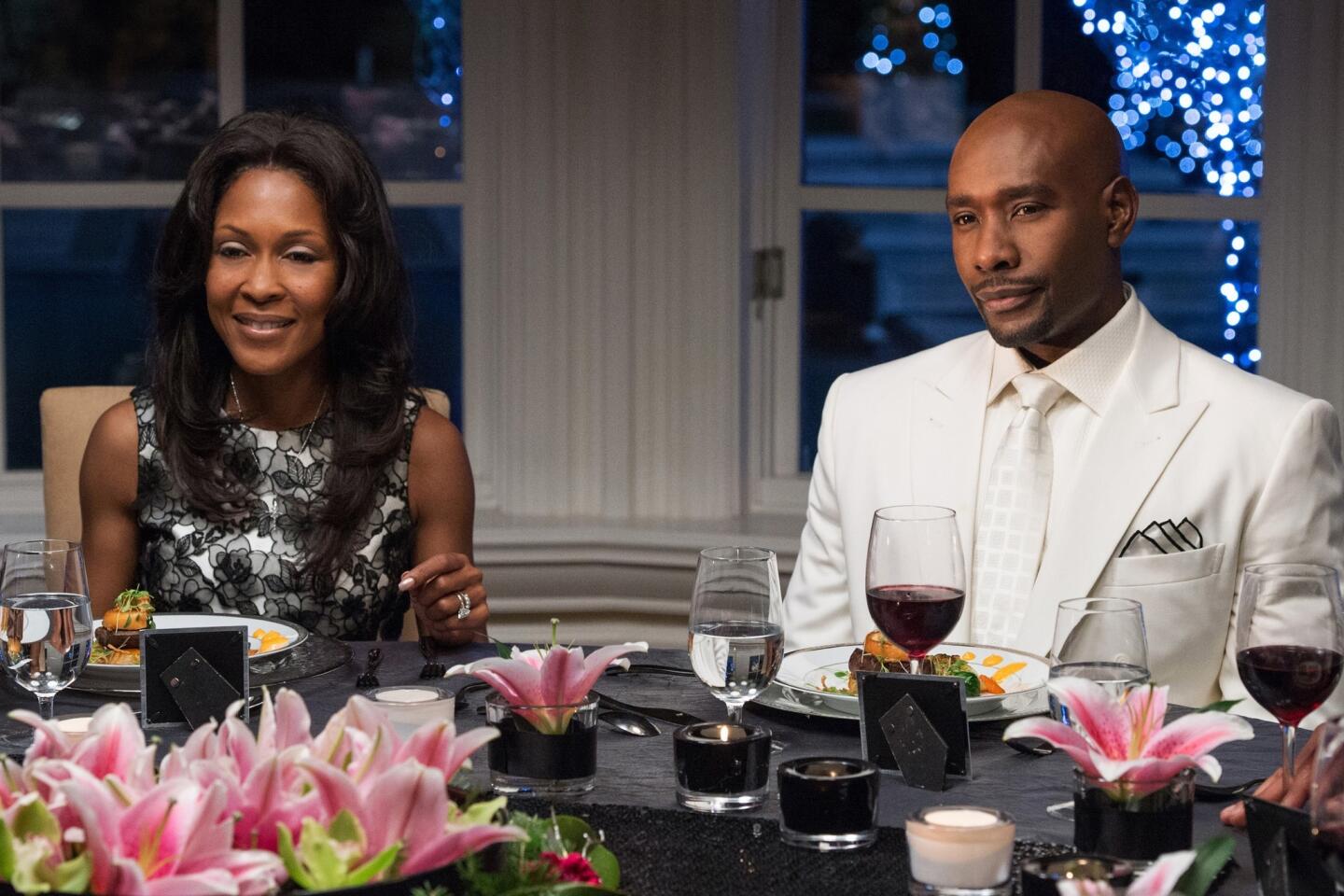Review: ‘Best Man Holiday’ a raucous yet thoughtful reunion
“The Best Man Holiday” is a reunion story, a reconciliation story, a get-down-on-your-knees-and-pray story, a circle-of-life story. But above all it is filmmaker Malcolm D. Lee’s dissertation on the current state of the black experience as upscale, evolving, faith-based and agitated.
Lee’s unruly follow-up to 1999’s “The Best Man,” his sprawling ensemble comedy about a tight circle of African American college friends and a falling-out during a wedding, picks up 15 years later after countless grown-up issues have had time to settle in.
Be ready to reach for a tissue, say “amen” and sigh more than a few times, for the film has all the chaos and clutter of a big holiday gathering.
PHOTOS: Scenes from ‘The Best Man Holiday’
The original’s racy comedy, cast and caricatures return. But there are serious, sober issues propelling the stories. It takes a bit of doing, but here’s how Lee sets the table: Lance (Morris Chestnut) and Mia (Monica Calhoun), the handsome football superstar and his saintly wife, whose premarital dalliance caused the original friction, are hosting the reunion. He’s on the verge of a record-breaking run in the Christmas Day game — and a surprise retirement. She’s determined to patch up the past in the face of pressing health concerns.
Harper (Taye Diggs) is a bestselling author, Lance’s best man and Mia’s dalliance. He and Robyn (Sanaa Lathan), his smart significant other, are finally expecting after years of costly and heartbreaking fertility treatments. Julian (Harold Perrineau) and Candace (Regina Hall), the social activist and the stripper, are now happily married with kids. But a YouTube video of “Candy’s” earlier indiscretions has gone viral and funding for the school Julian runs has taken a hit.
Driven career girl Jordan (Nia Long) has gotten more successful and a little closer to a commitment with a new boyfriend named Brian (Eddie Cibrian), who is, gulp, white — prepare yourself for a lot of corny vanilla and latte jokes. The loose cannons of the group are looser and more lethal. Shelby (Melissa De Sousa) is a reality-TV superstar with an entitled ego to match, and the smoky, sultry Quentin (Terrence Howard) is still drifting and still making trouble. As he was in the first film, Quentin is responsible for fueling much of the conflict, and Howard is smooth as silk in navigating that minefield.
The strength in Lee’s films is never in the bombast or its blaxploitation indulgences but in quiet conversations. When the hyper-sexualized showboating and the explosive temper tantrums fade back, reality in the form of real human relationships slip in. The writer-director creates complex interconnections among each of the friends, but the central one remains the Lance-Harper dynamic.
Beyond the specifics, which involve Harper’s hope of resurrecting his struggling career with a biography on Lance, the core theme is how men show their vulnerability. When that raw need is exposed by any of the characters, the film is at its finest.
Running parallel are the women’s issues. Lathan’s long-suffering pregnant wife and Long’s career sophisticate are particularly well-drawn female characters. It is refreshing to see women allowed to step beyond the stereotypes, with the actresses bringing an intelligent authenticity to the roles. Shelby, on the other hand, is all stereotype, all the time, with a capital “B.”
Even with excesses, the performances are solid. If anything, the intervening years have given Lee a far more seasoned cast, and they do much to keep the film from completely unraveling, a constant threat.
Howard, meanwhile, is a menace to this society in all the right ways. The actor has built a thick portfolio of fine roles, including his 2006 Oscar nomination for the hip-hop bad boy in “Hustle & Flow.” He is deliciously sleazy and keenly observant as Quentin. His eyes, heavy-lidded, and his smile, always ironic, never fail to improve the moment or explain what is really going on.
Director of photography Greg Gardiner, production designer Keith Brian Burns, costume designer Danielle Hollowell, with Stanley Clarke in charge of the music — always a major chord in Lee’s movies — have helped polish the production to a high sheen.
“The Best Man Holiday” is Lee’s most ambitious film. There is so much the writer-director wants to say about God, faith, fame, family and affluent African American life. The result is a joyous, raucous, righteous film but also a frustrating and disappointing one. Not quite the gift of the season some had hoped for.
-----------------------------------
‘The Best Man Holiday’
MPAA rating: R for language, sexual content and brief nudity
Running time: 2 hours, 2 minutes
Playing: In general release
More to Read
Only good movies
Get the Indie Focus newsletter, Mark Olsen's weekly guide to the world of cinema.
You may occasionally receive promotional content from the Los Angeles Times.
